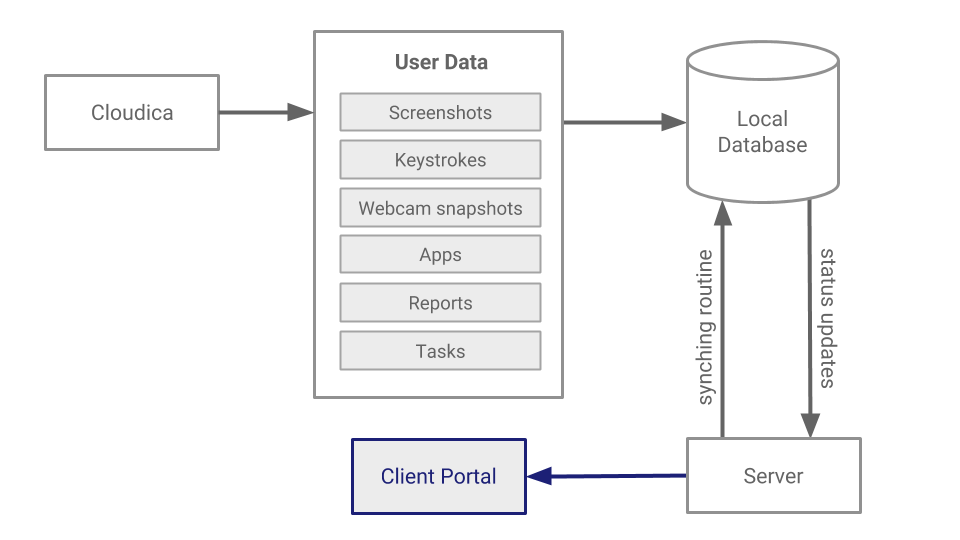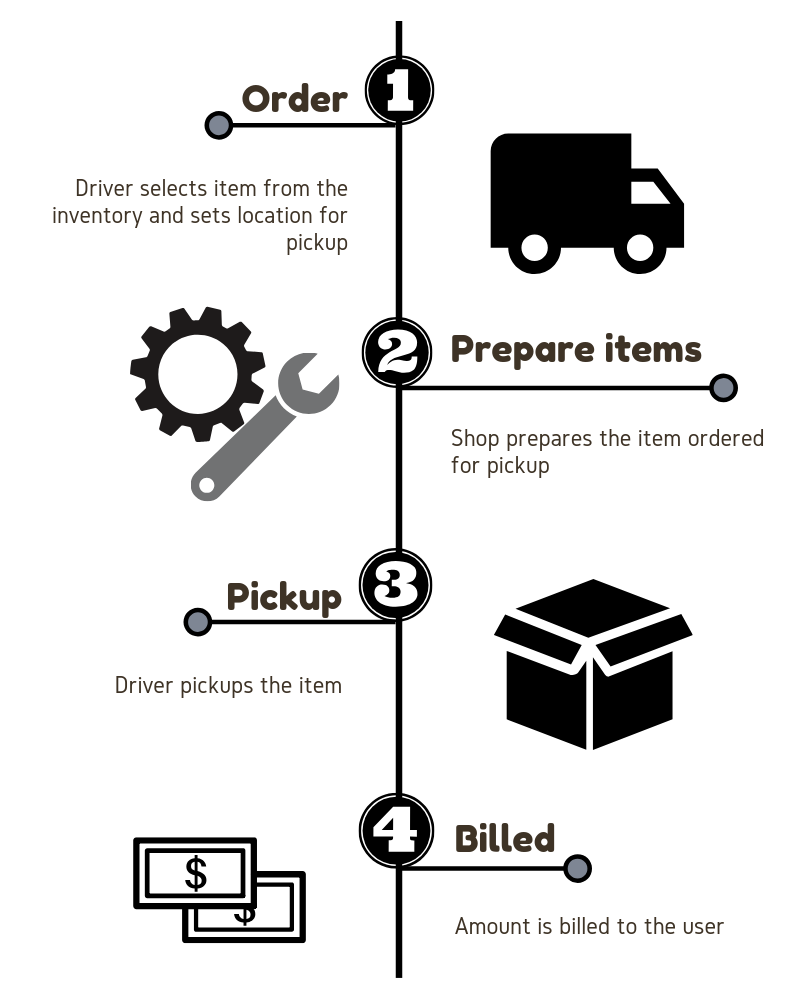Resources
Find out how Agents of Value helps clients improve their processes by providing innovative, technology-driven solutions, thereby propelling business growth.

Advertising Campaign Tracker
Case Study Advertising Campaign Tracker with Audio Fingerprinting

Agent Monitoring Application
Case Study Cloudica Client as an Agent Monitoring Application Case Study

Driver Equipment Tracker Study
Case Study Driver Equipment
Tracker
Advertising Campaign Tracker with Audio Fingerprinting Case Study
For over two years, Agents of Value has teamed up with a company that deals in managing advertising campaigns and acts as a third-party for advertisers and content owners who want their advertising campaigns aired on various broadcasting stations.
The company would buy slots from tv and radio stations to run these campaigns and setups may vary on several conditions like frequency, duration, time and location. As such, there was a need to have a system that can monitor radio and television broadcasts and verify that a campaign has been aired on its expected schedule
Project
To answer this problem, Agents of Value developed a system that can automatically scan broadcasts and check if a client’s ad campaign has been aired. This process was made possible by using an application of automatic content recognition technology called audio fingerprinting.
Background
Before the system was developed, the process of checking broadcasts for ad campaigns was done manually. This involved radio and tv stations sending back a compliance report to the company that details the number of times an ad has been aired over a certain time and date. The company staff also had to verify these data by listening to these broadcasts and logging the data manually. This approach can be quite inefficient because of the number of people and amount of effort required.
What is Audio Fingerprinting?
An audio fingerprint or acoustic fingerprint is a compact digital summary generated from an audio signal that can be used to identify a recording or quickly locate similar items in an audio database. Just like an actual fingerprint you see on your fingertips, an audio fingerprint is unique and every piece of recorded audio has them.
How It Works

Figure 1. Audio matching process
As illustrated above, the system works by first recording broadcasts daily and uploading them into the server where it is converted into a series of audio fingerprints and stored into the system’s database.
On the other end, audio campaign samples sent out by the advertisers are also converted into audio fingerprints. An algorithm then goes through each fingerprint and scans the repository for a match. Once an audio match is found, it should also match the data that accompanies both fingerprints such as date, time, media station, location and frequency. The corresponding matching audio from the broadcast is clipped with an extended margin of time as proof that an ad has been aired correctly.
On the other end, audio campaign samples sent out by the advertisers are also converted into audio fingerprints. An algorithm then goes through each fingerprint and scans the repository for a match. Once an audio match is found, it should also match the data that accompanies both fingerprints such as date, time, media station, location and frequency. The corresponding matching audio from the broadcast is clipped with an extended margin of time as proof that an ad has been aired correctly.
The implementation of this automated system has helped the company improve their overall process of campaign tracking across media platforms and within two years of working together with Agents of Value, the following results have been gathered:
- Over 1000 campaigns tracked
- 10 markets reached
- 50+ client brands
- 10000+ data points
Outcomes
The implementation of this automated system has helped the company improve their overall process of campaign tracking across media platforms and within two years of working together with Agents of Value, the following results have been gathered:
- Over 1000 campaigns tracked
- 10 markets reached
- 50+ client brands
- 10000+ data points
Cloudica Client as an Agent Monitoring Application Case Study
In the field of business process outsourcing, transparency is important in order to establish trust between a client and an agent. Agents of Value provides clients and project managers access to real-time monitoring of their agent’s work performance through their proprietary remote monitoring software called Cloudica.
In its early stages the project was called AgentGuardian, an application that enables managers (clients, agent supervisors, project managers, human resources, and the like) to monitor and regulate their agent’s activities during their shift. During its development, which ended in 2015, additional features and functionalities were added to make it a more complete system.
Background
At its core, AgentGuardian and Cloudica function the same way. Along with extra added features, Cloudica was developed as the next generation monitoring system to address the issues and other shortcomings of its predecessor.
What is Cloudica?
Cloudica is a Human Resources Management System made up of three major components: Employee Information Portal (EIP), Employee Monitoring, and the Cloudica Dashboard.
The EIP serves as a gateway for the employee profile databank. This will serve as the company databank for relevant information such as employee & company profiles, operation schedules, offices, departments and other related data.
The Cloudica Client Software is the monitoring application that allows managers to track and log an employee’s activities on the computer during a work day. Data recorded include the following:
- Employee work hours
- Keystrokes and screens/pages accessed
- Periodic snapshots of the employee if a webcam is installed
- Apps/programs/processes opened and used
- Employee daily report
- Tasks and how long they took to complete
The captured data can then be accessed on the Cloudica Dashboard by authorized users.
How It Works

Once a user logs in, the software works by capturing remote user data from the machine where it is installed and stores them in localDB. A synching routine runs in the background to check for new data and performs an http/https-based request to the server. The response received by the client is processed and synchronization status is updated.
Challenges & Results
The Cloudica Client Software has managed to address the following problems and issues encountered by AgentGuardian:
- AgentGuardian is date-based which means separate timesheets for shifts that span between days (agents that work on night shifts). Cloudica Client is schedule-based so there will only be a single timesheet per shift regardless of the date.
- AgentGuardian does not support multi-login and overwrites data from the previously logged in machine. Cloudica allows you to log on to several computers and the application will just track and sync up all your data.
- Cheat-proof. Users will not be able to trick the application by changing the computer time to manipulate their work hours.
- Cloudica syncs every minute so tracking updates are always close to real-time.
- Users will be able to see both their actual logged time and synced time so it will be easier to track if there are syncing issues. AgentGuardian only displays the synced time.
There are however, several points to consider when using this application:
- The software will only start tracking once the user logs into the application;
- Abrupt changes in schedule during a shift might mess up the timesheet for the day;
- The application is only available for use on Windows OS.
Further Improvements
Since the application’s development officially ended, only a few minor features and bug fixes have been added. No major improvements are planned in the near future.
Driver Equipment Manager & Program Issue Tracker System
A flatbed transportation company that provides a supply of equipment for their services has teamed up with Agents of Value to develop a systematic solution to manage and track the circulation of items from their various branches and build a centralized inventory for it with a Driver Equipment Management Program Issue Tracker.
Background
Handling transportation services for industrial materials such as steel, machinery or gas oftentimes require certain equipment to handle such as binders, rubber belting and steel tarps. These items aren’t always on hand and have to be purchased or ordered from other places which can be quite inconvenient due to the fact that drivers are always moving from various locations and they often have to go back every time they pick up their items. It’s inefficient because of the extra amount of time and effort required to accomplish such a task.
Thus, aside from the transportation services, the company also has shops in different locations that can directly provide necessary equipment for these deliveries. The Driver Equipment Management Program Issue Tracker is designed to further optimize this model by introducing an inventory system to make the items easily accessible to their users from different locations.
How It Works
The Driver Equipment Management Program Issue Tracker developed by Agents of Value is an inventory system that catalogs all the items from the company’s shops and makes them available to their drivers for purchase or rent without personally visiting the shops themselves.
This works by allowing users access to the inventory through the system where they can purchase or borrow these items and choose the most convenient location it will be available for pickup. Transactions like payments are also done online and once all the requirements are processed, the user will be notified when their equipment is ready for pickup.
The system also monitors the circulation of these equipment and provide up-to-date information by keeping track of their availability as well as check for anything that needs restocking, replacements or repair.

Results and Further Improvements
The system aimed to help the company manage their operation efficiently. By the end of the project, the Driver Equipment Management Program Issue Tracker has managed to:
- Offer an efficient solution for the company to directly provide items for their transportation services.
- Save time and effort because the inventory already provides all the necessary information for purchase without any hassle like checking store to store for item availability.
